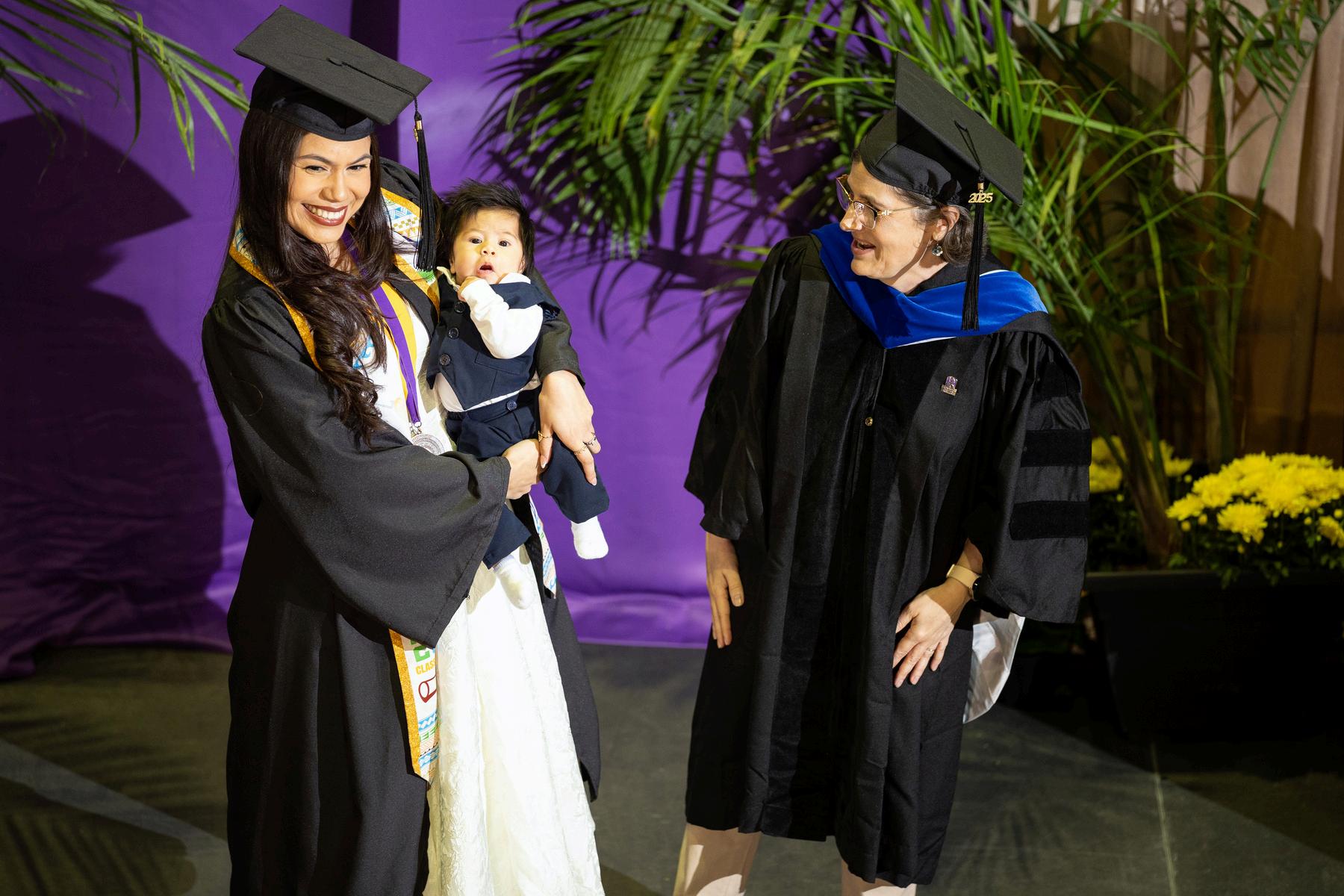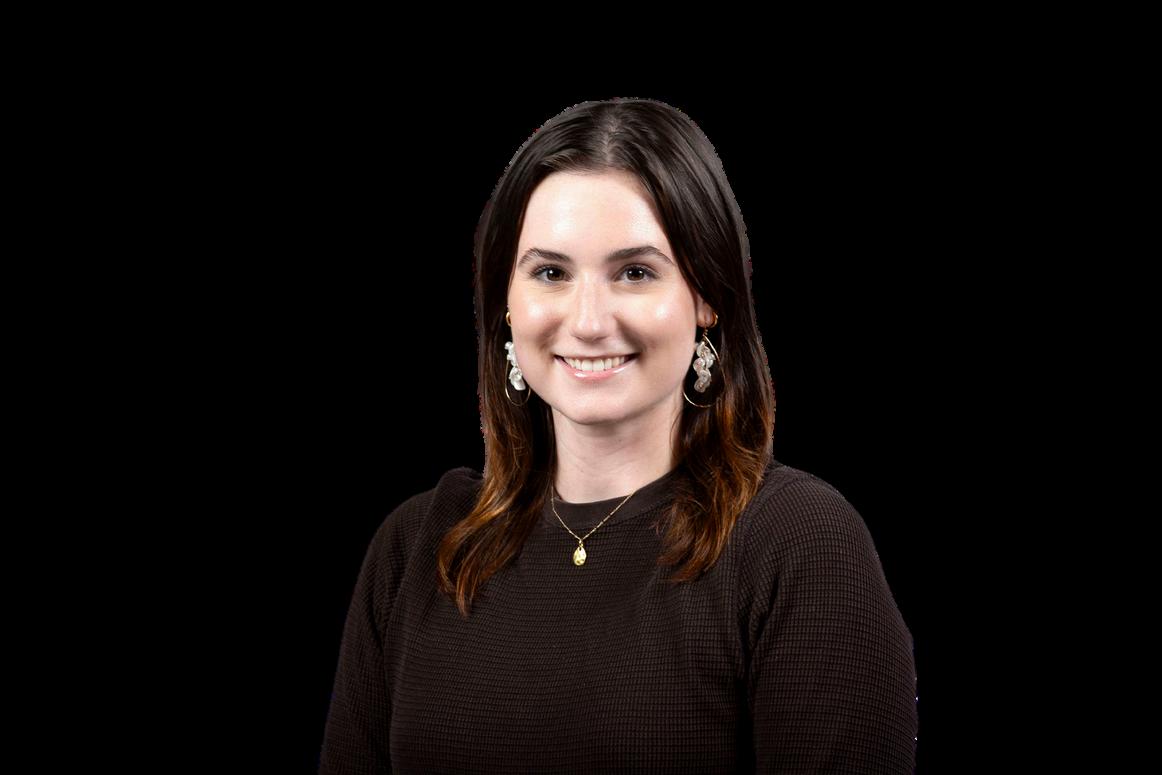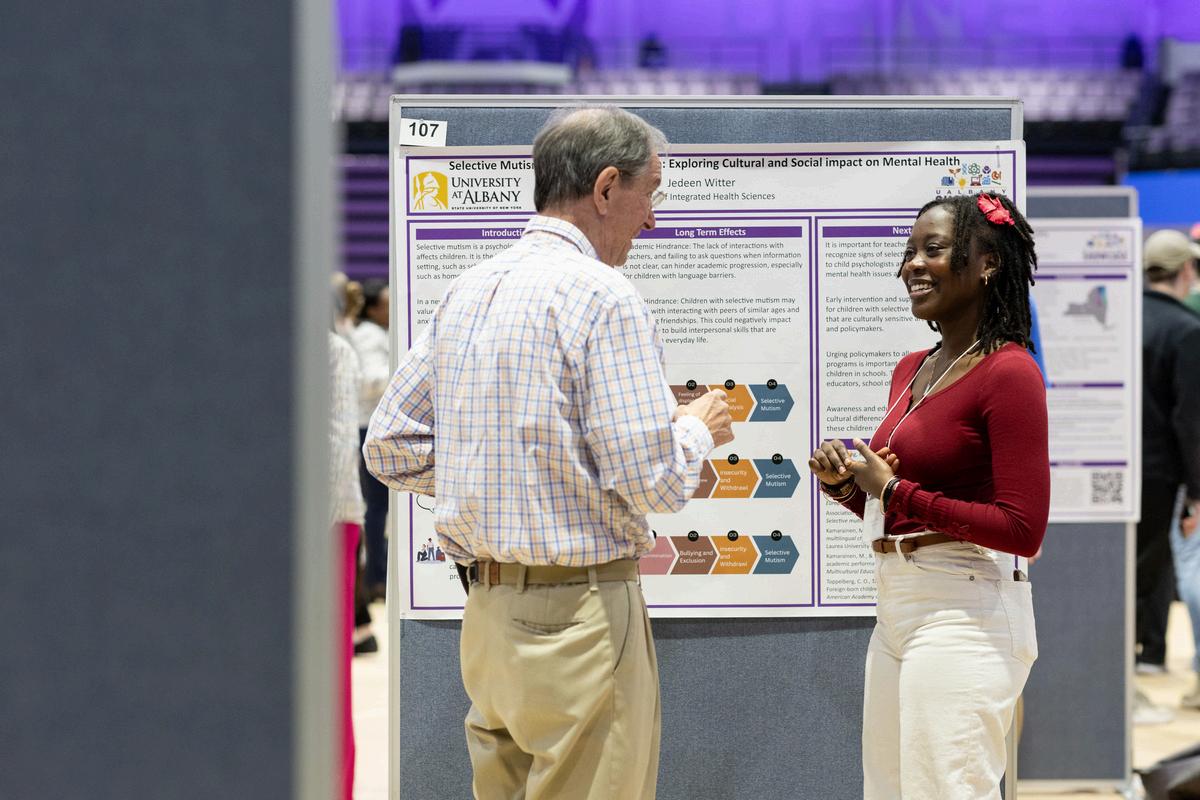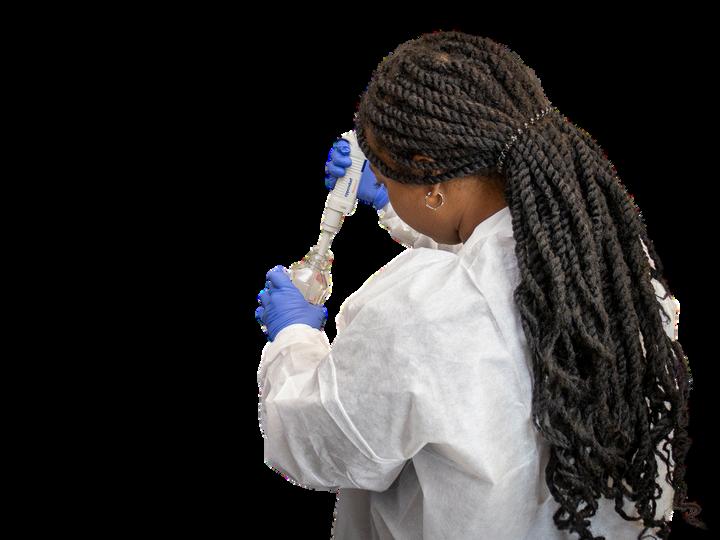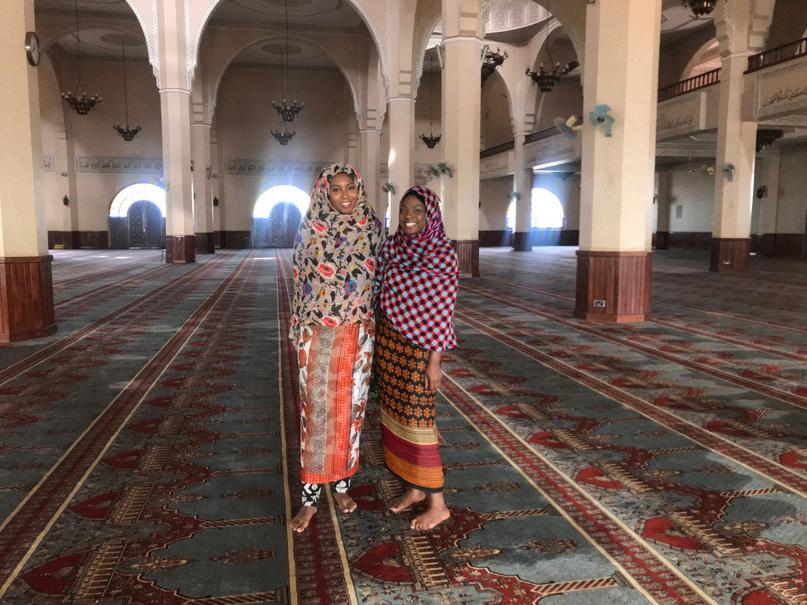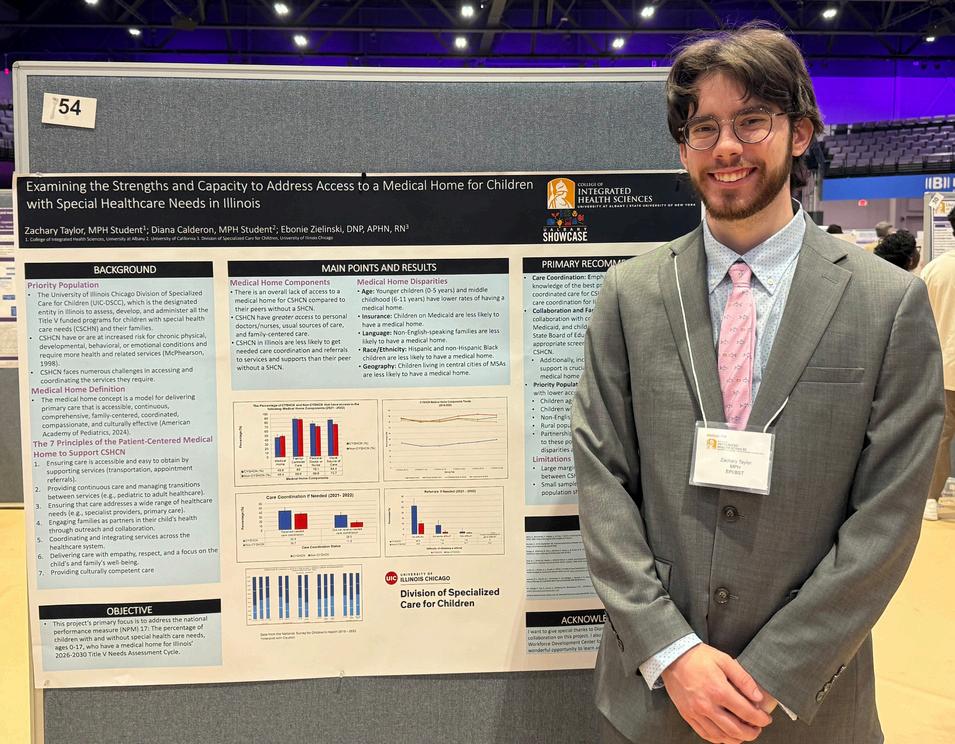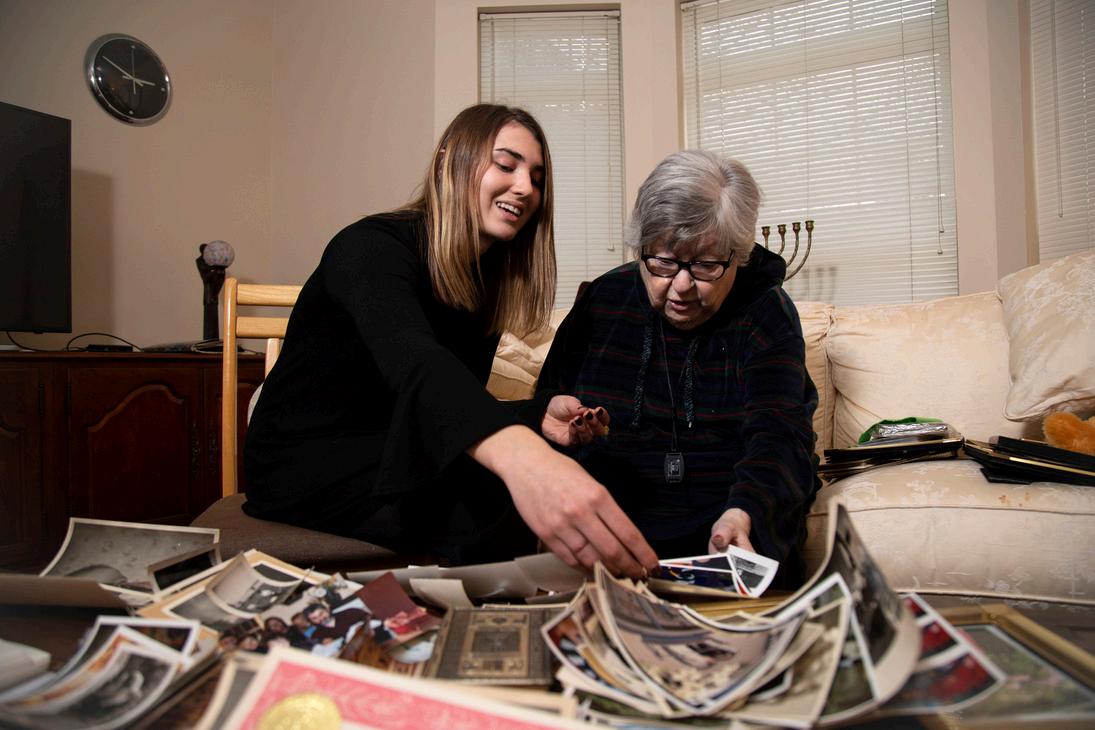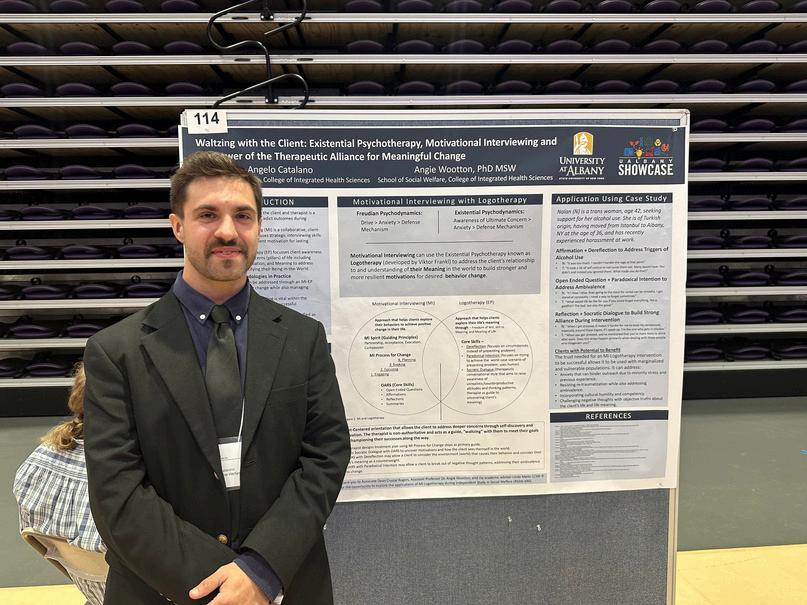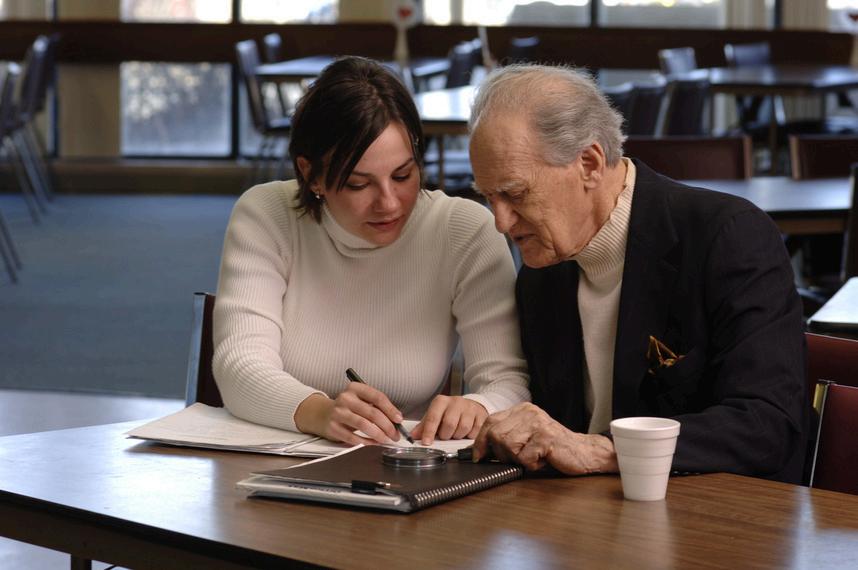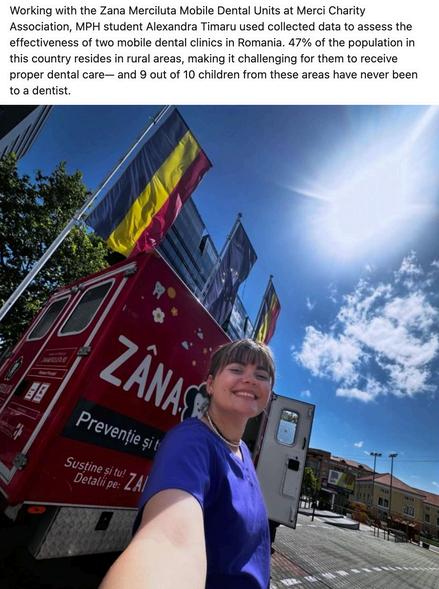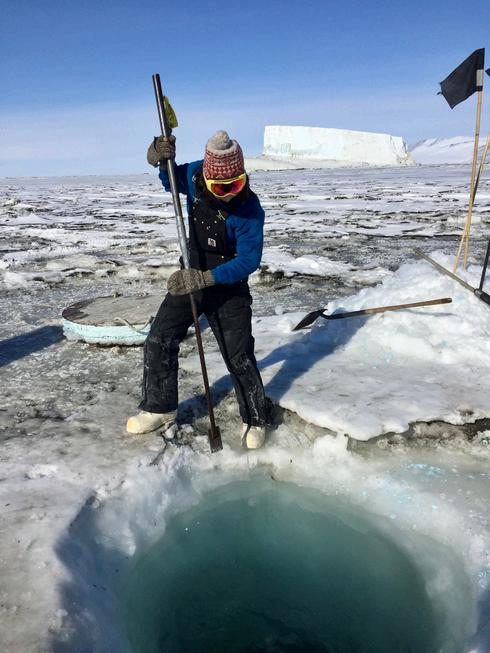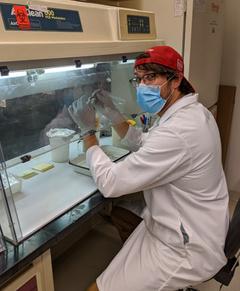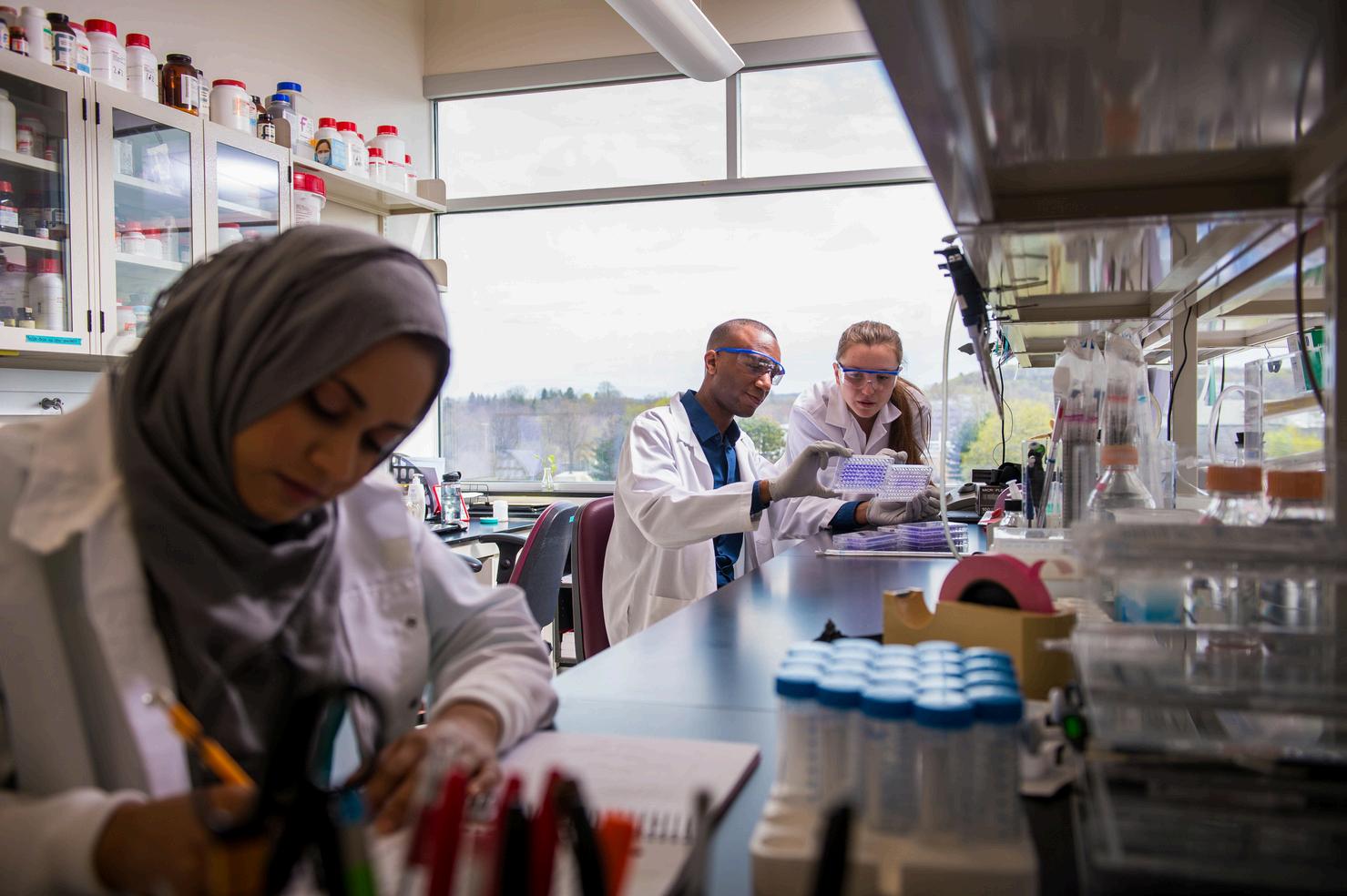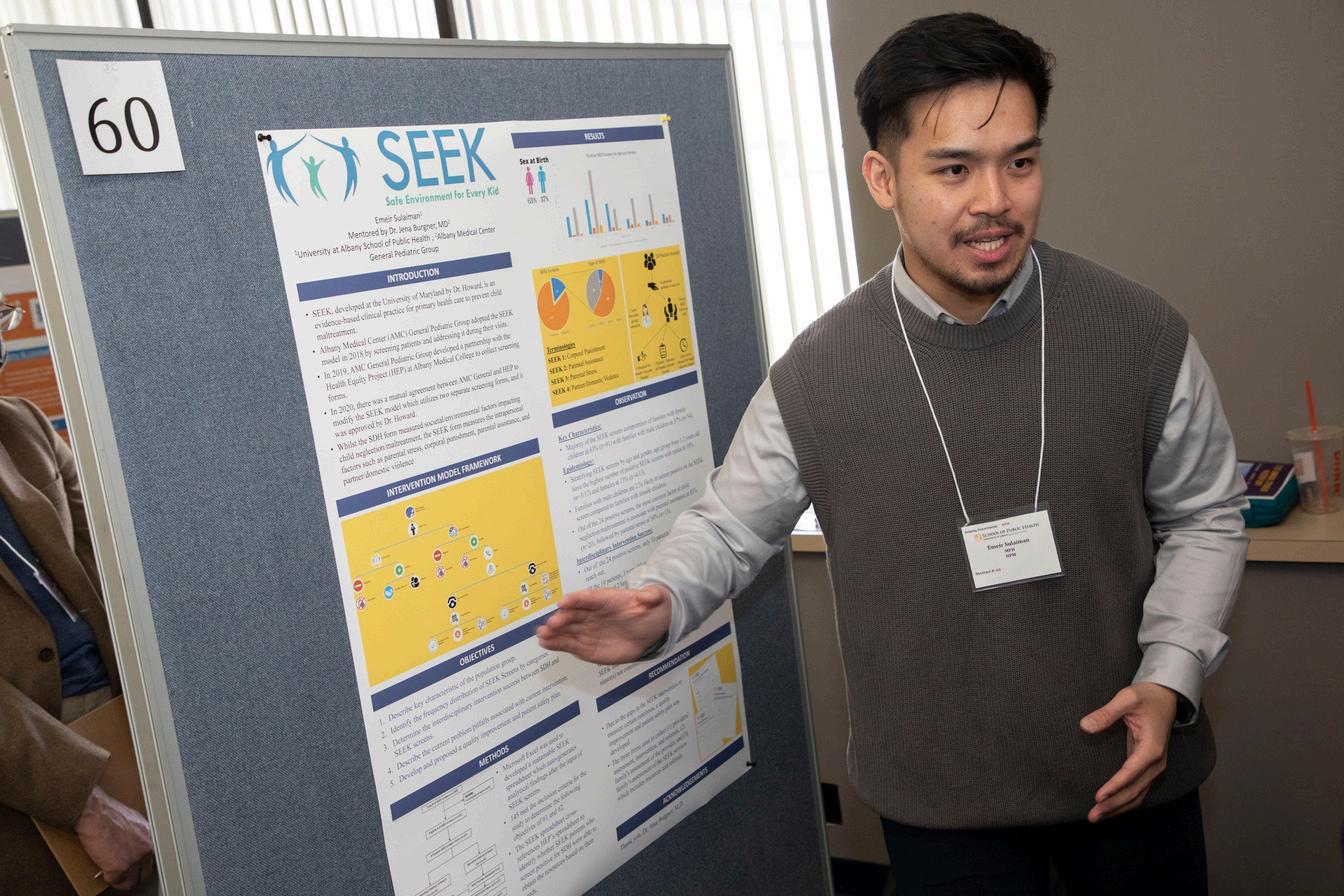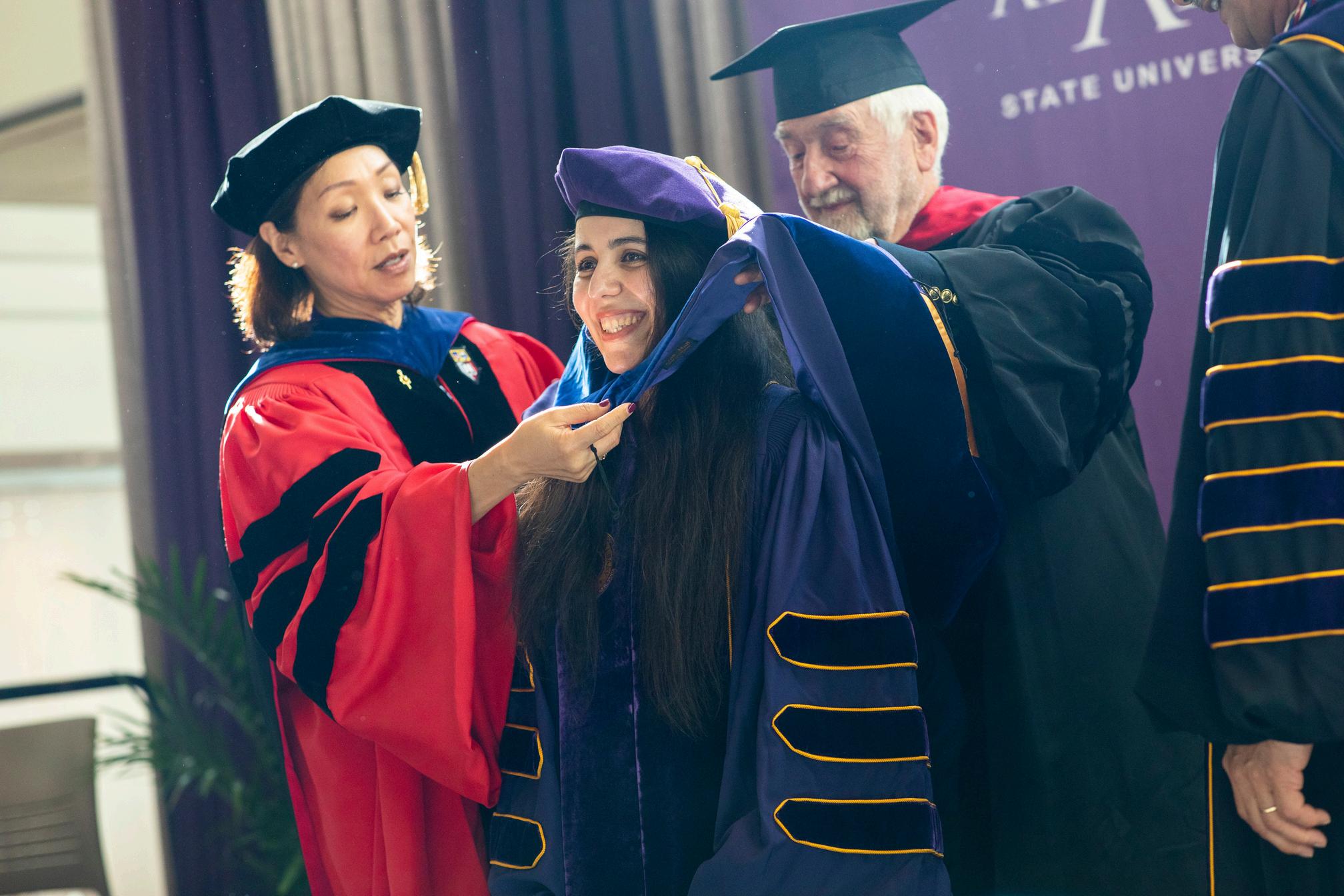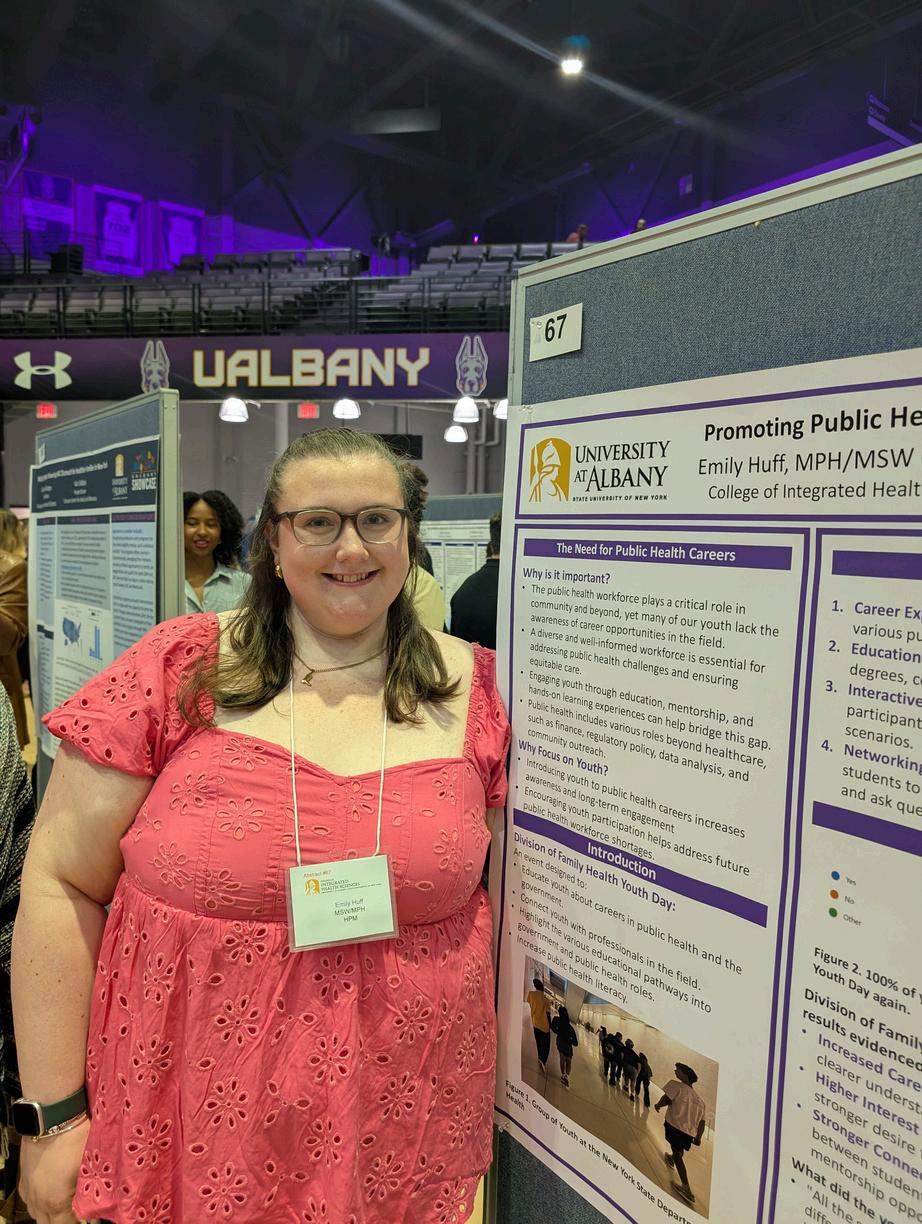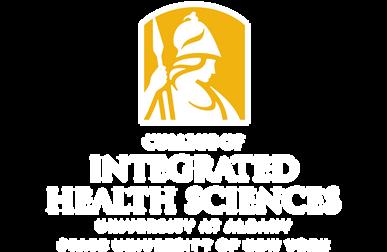Make a lasting impact with a degree from UAlbany’s College of Integrated Health Sciences.
Driven by an unwavering commitment to social justice and the elimination of health disparities, the University at Albany’s College of Integrated Health Sciences empowers change through interdisciplinary research and transformative learning By addressing the complex factors that shape social and health equity, we create meaningful advancements that uplift the communities we serve, inspire a more just and equitable world, and instill in our students the drive to make a difference.
Whether you’re pursuing a career in public health, social welfare, biomedical sciences or nursing, your ability to help people will flourish as you gain practical knowledge and experience to improve well-being on local, national and global levels.
The College of Integrated Health Sciences is home to the following departments and units:
School of Social Welfare
Biomedical Sciences
Environmental Health Sciences
Epidemiology and Biostatistics
Health Policy, Management and Behavior
Nursing
28
1,012
197 academic programs current students expert faculty
“
The University at Albany drew me in due to its core of social justice and its policy-making presence. The opportunities for making change at any and every level are infinite here.”
-Em VanWagoner, MPH/MSW student (pictured left)
Why study at UAlbany’s College of Integrated Health Sciences?
Affordability
As a public research university, UAlbany costs considerably less than most private institutions while offering the same rigorous academic experience and the same career outcomes.
Many students receive tuition assistance through scholarships and funded positions. More information can be found at albany.edu/cihs/admissions.
Commitment to diversity, equity, and inclusion
Our College, and our University as a whole, recognizes the strength of our diversity UAlbany has earned the Higher Education Excellence in Diversity Award and the Seal of Excelencia for Latina and Latino Students in recognition of success and dedication to creating an inclusive campus environment where students and faculty from all backgrounds are supported and empowered
1st
university in New York to receive the Seal of Excelencia
100+
40%
countries represented by UAlbany students and faculty of UAlbany students are from underrepesented groups
UAlbany’s location offers amazing opportunities for internships, networking, and fieldwork. I am currently working at the Wadsworth Center. I really enjoy the work I am doing, and I am so grateful to work with all of the amazing people in the lab!”
Critical research that impacts health and wellbeing
Through collaborative research initiatives, including partnerships with experts at the New York State Department of Health, the Office of Mental Health, and the Office of Children and Family Services, we tirelessly pursue positive change for New Yorkers and beyond. Our faculty and students work side by side to generate revolutionary knowledge and develop groundbreaking solutions to pressing issues that affect us all.
academic papers published in the past year, including in top academic journals
475+
partner organizations for hands-on learning
Location in New York’s capital city
Located in Albany, New York, the College of Integrated Health Sciences is situated within a city rich with opportunities for academic pursuits and advancement. You’ll have access to both urban and rural communities, along with hands-on learning experiences in government agencies, state and local health departments, health care and pharmaceutical companies, not-for-profits, social service agencies, mental health organizations and other community-based organizations We serve a variety of populations, including older adults, the unhoused, immigrants, refugees, and the LGBTQ+ community
-Ariana Nobles, MS in Biomedical Sciences student (pictured below)
Academic Programs
Online Programs
Social Work (MSW)
Public Health Practice (MPH)
Population Health Nursing (MS)
Public Health Fundamentals and Principles (Graduate Certificate)
Public Health Surveillance and Preparedness (Graduate Certificate)
Global Health Studies (Graduate Certificate)
Descriptions of our online offerings can be found on the next few pages.
Undergraduate Programs
RN to Bachelor’s in Nursing program (BS)
Earn your BS in nursing This program is only for students who already have an associate of science (AS) in nursing or associate of applied science (AAS) in nursing from an institution accredited by ACEN, CCNE or CNEA
Nursing 1+2+1 (BS)
Graduate with your associate degree in nursing (ADN) at the end of your third year and begin working as a registered nurse while you finish your coursework in year four.
Public Health (BS)
Gain knowledge of the sciences, sociology, psychology, economics, and politics of public health problems and learn approaches to increasing the health and wellbeing of diverse populations.
Social Welfare (BS)
Learn to advance social, economic and environmenta justice and to serve people who are vulnerable, marginalized, and oppressed
For questions related to the admissions process, contact the Office of Undergraduate Admissions at ugadmissions@albany.edu or (518) 442-5435.
Master of Public Health (MPH)
MPH
Gain comprehensive training in public health fundamentals while specializing in one of seven concentration areas: biomedical sciences, biostatistics, environmental health, epidemiology, health policy and management, social behavior and community health, or public health practice (online). You’ll be prepared to design, implement, and lead public health initiatives across government, nonprofit, health care, and global settings
MPH / MD
34%
of MPH students receive job offers directly from their internship sites after their position ends.
If you’re pursuing your Doctor of Medicine (MD) at Albany Medical College and want to enhance your ability to address public health issues as a physician, you can earn your MPH through UAlbany at the same time
MPH / MSW
Combine social work expertise with a population-focused public health perspective Earn both degrees more efficiently while building skills to lead in community healthcare, government, and non-profit settings
“
After graduating, I was hired at Albany Medical Center in the Epidemiology Department as an Infection Preventionist. UAlbany opened this opportunity for me as I was an intern in this department before I graduated.”
-Erin Hallenbeck, MPH ‘24
Master of Social Work (MSW)
MSW
Prepare for a profession focused on improving individual and societal well-being with enduring commitments to social and economic justice You’ll be ready for all levels of practice–micro, mezzo and macro–meaning you will develop expertise to support individuals, families, small groups, communities, organizations and even shape policies.
Social Work / Criminal Justice (MSW / MA)
Prepare for an impactful clinical or managerial social work career within the U.S. criminal justice system, or in community-based programs focused on crime prevention.
Social Work / Juris Doctor (MSW / JD)
Earn both degrees in four years of full-time study. You will be prepared to implement, promote and advocate for change at individual, community and policy levels.
MPH / MSW
Combine social work expertise with a populationfocused public health perspective Earn both degrees more efficiently while building skills to lead in community health care, government, and non-profit settings
Biomedical Sciences (MS)
Deepen your understanding of infectious and non-infectious diseases through hands-on research and expert mentorship at UAlbany and the renowned Wadsworth Center. Build advanced laboratory skills, collaborate with leading scientists, and contribute to biomedical research that drives public health innovation.
Biostatistics (MS)
Design clinical experiments, examine big data, identify trends, and perform statistical analyses that lead to improved public health outcomes, services, and policies. The curriculum includes coursework in various methods of advanced mathematical analysis that can be readily applied to epidemiologic research
Environmental Health Sciences (MS)
Investigate how environmental exposures like air and water pollution, chemicals, and climate-related risks impact human health You’ll gain the skills, hands-on research, and professional network to address urgent environmental challenges that impact the health of communities
Epidemiology (MS)
Prepare for a career in health surveillance, disease prevention, or datadriven decision-making in the public health field You’ll learn to design studies, analyze population health data, and identify strategies to control the spread and impact of communicable and chronic diseases across diverse communities.
Population Health Nursing (MS)
Develop the skills to respond to the health needs of vulnerable populations and communities. You’ll acquire expertise in population and community needs assessment, epidemiology, biostatistics, systems thinking and planning, and social and behavioral aspects of health.
Master of Science (MS)
Doctoral
Biomedical Sciences (PhD)
Conduct rigorous, independent research in infectious and non-infectious diseases under the guidance of expert faculty at UAlbany and the Wadsworth Center. Develop advanced laboratory skills, lead collaborative projects, and contribute original biomedical research that advances public health science and practice
Biostatistics (PhD)
Gain the advanced training and research experience needed to become a leader in public health, medicine, and the life sciences You’ll be prepared to design studies, develop new statistical methods, and analyze large-scale biological data to address today’s most urgent health challenges
Environmental Health Sciences (PhD)
Apply advanced research methods and lab techniques across biological, physical, and medical sciences to investigate and solve complex environmental health challenges preparing you to lead innovative research and influence policy. Your research will enable you to examine how environmental factors, ranging from contaminants to climate change, impact human health and ecosystems.
Epidemiology (PhD)
Develop analytical expertise and gain teaching experience as you investigate public health problems, design full-scale studies, analyze data, and translate the results into public health action. You’ll collaborate with faculty on pressing issues such as HIV/AIDS, viral hepatitis, STIs, zoonoses, racial and ethnic health disparities, food insecurity, substance use, stress, violence, and life course epidemiology.
Public Health (DrPH)
Lead transformative change in public health systems by integrating advanced practice, leadership, and policy expertise to design, implement, and evaluate real-world solutions to complex public health challenges Your degree will prepare you to take on senior leadership roles in government, nonprofits, academia, and health care organizations
Social Work (PhD)
Prepare for leadership positions in research, practice, and policy that further social and economic justice, or a career in academia Advance your knowledge of social work practice theory, social welfare policy, research methods, and data analysis as you develop expertise in your area of interest
Graduate Certificates (CGS)
Graduate certificates can be completed as standalone programs or can be added on to another graduate-level degree, such as the MPH or MSW. Some certificate credits count towards both your certificate program and another degree program.
Health Disparities (CGS)
Learn why and how health care access and the incidence of disease and disability differs between groups. You'll learn how to advocate for underserved populations and change the way health organizations serve these communities.
HIV Studies (CGS)
Study HIV transmission, impact and clinical concerns while you explore public health approaches and strategies that work to address drug abuse and addiction, which have been linked to the HIV epidemic since it began
Maternal and Child Health (CGS)
Examine issues, outcomes, and disparities at various life course stages providing you with the tools to analyze and develop policies, programs and initiatives to improve maternal and child health
Public Health Fundamentals and Principles
Gain the foundation for a meaningful career in public health. All 6 courses in the certificate are directly transferrable to the MPH program, so you can go on to earn your MPH if you choose.
Public Health Surveillance and Preparedness
Gain broad knowledge of epidemiology and infectious disease transmission, and formal training in emergency planning to help you respond to crises that impact health.
Global Health Studies
Learn to design, implement, maintain, and evaluate large-scale public health interventions and expand health services in domestic settings and developing countries
Visit our website (albany.edu/cihs) by scanning the QR code below. You can find information on our academic programs, admissions requirements, application process, research, faculty, and more.
Join our admissions professionals for an information session to learn more about attending the College of Integrated Health Sciences. Scan the QR code to view our upcoming sessions.




